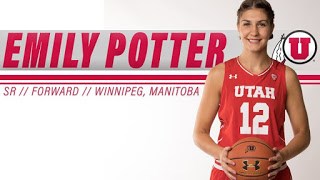Being a sports fan is interesting. There are certain teams and athletes to whom we willingly give the utmost devotion, and there are others we despise. Some sports we find thrilling, others are baffling, and some we just cannot connect with.
I’ve always loved basketball, as a player, as a coach, and as a fan. There is something artistic, even beautiful, about the game when it is played well. For this reason, I’ve long appreciated the Women’s National Basketball Association (WNBA). It is more of a team game than what one normally sees in the NBA, the top men’s professional league in the world. The athletes are highly skilled, and both offensive and defensive play is executed to virtual perfection. As a coach, I could tell my players that if they want to become better at basketball, they should watch the WNBA and practice doing what they see.
Yet, I never had a strong attachment to the WNBA. I enjoyed the games, but I could never make the kind of connection that was necessary to be a real fan.
This began to change a few years ago, however. Along with loving sports, I am an advocate for human rights. I have unbounded respect for athletes who use their public platforms to draw attention to social issues, even when it could potentially put their careers at risk.
Despite having salaries no higher than that of an average working professional, I observed WNBA players using their public platform and risking their livelihood by speaking out for human rights.
To its credit, the executives of the WNBA did not try to admonish these women. Clearly, this was a league that understood that success is not measured by a short-term financial bottom line, that building a connection to a fan base meant building trust with one’s community, both locally and globally.
Then I realized that the WNBA not only spoke out on major social issues, but their executives also treated the people who worked behind the scenes with decency, integrity, and kindness. I learned from my cousin that her late husband had worked as an accountant for the Connecticut Sun in the early 2000s, a team that plays its home games on Mohegan territory and is owned by the Mohegan Nation. When he passed away suddenly and tragically, the team gave my cousin and her young family a framed jersey, signed by every player on the team. This has become one of her family’s most cherished possessions, something that not only reminds them of a good man, but of a high-profile sports organization that truly valued his devoted service.
This story transitioned me from an admirer to a true fan. I’ve begun watching the Connecticut Sun with devotion and with great emotion. I have not been disappointed. Despite not having won against the Chicago Sky (the 2021 WNBA champions) during the regular season, the Sun defeated them three games to two in the semi-finals to advance to the league championship series against the Las Vegas Aces. This is the team’s third appearance in the league finals in their history, and this time they will win.
It seems that I am not the only person with growing enthusiasm for the WNBA. Viewership is up significantly in recent years and corporate sponsorships are also increasing. Interest levels are still nowhere near what they are for the NBA, but that is clearly changing. The day is coming when female players are paid what their male counterparts earn, and a devoted global audience will enjoy basketball at its finest.
The WNBA has chosen to do things the right way, with tremendous integrity and a great product. In essence, they are what all professional sports should be.
Gerry Chidiac is a Prince George writer.



